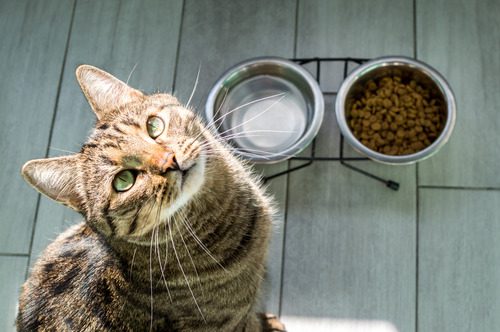Cat Dehydration: Symptoms, Treatments and How to Protect Your Pet

Dehydration in cats is a serious health concern that can indicate various underlying issues, ranging from mild to life-threatening conditions. It occurs when a cat’s body loses more fluids than it takes in, leading to an imbalance that affects essential bodily functions. Recognizing the signs of cat dehydration early is vital for timely intervention and preventing further health complications. This blog will explore the symptoms of dehydration in cats, discuss professional treatments available, and provide tips on how to protect your cat from becoming dehydrated. For personalized advice and treatments, contact Stevenson Ranch Veterinary Center at (661) 799-0655 or book an appointment online.
Recognizing the Symptoms of Dehydration in Cats
Identifying the signs of dehydration in your cat is the first step to ensuring they receive the care they need. Below are key symptoms to watch for:
- Decreased Skin Elasticity: One of the simplest methods to check for dehydration is the skin turgor test. Gently pinch the skin on the back of your cat’s neck or between the shoulder blades. In hydrated cats, the skin will snap back into place quickly. If dehydrated, the skin will return slowly or might even stay tented.
- Less Frequent Urination or Darker Urine: Monitor your cat’s litter box. Changes in urination patterns, such as urinating less frequently or producing urine that is darker in color, can be indicative of dehydration.
- Dry Mouth and Gums: A cat’s gums are generally moist and slick. Dry, sticky, or pale gums are a warning sign of dehydration and warrant immediate veterinary attention.
Professional Treatments for Dehydration
When dehydration in cats is severe or linked to an underlying health issue, professional treatment from a veterinarian is necessary. Here’s what to expect:
Fluid Therapy
Veterinary clinics, including Stevenson Ranch Veterinary Center, often administer intravenous (IV) or subcutaneous (under the skin) fluids to rehydrate pets quickly and efficiently. This method helps in restoring electrolyte balance and supports recovery.
Monitoring and Supportive Care
Our veterinary team monitors dehydrated cats closely. Depending on the cause and severity of the dehydration, additional supportive care such as adjustments to diet, medications for underlying conditions, or even hospitalization may be required.
Preventing Dehydration in Cats
Prevention is always better than cure, especially when it comes to the health of your beloved cat. Here are practical tips to ensure your cat remains hydrated:
- Always provide multiple sources of fresh water around your home. Consider using water fountains designed for cats, as many cats prefer running water.
- Wet cat food has high moisture content and can significantly contribute to your cat’s daily water intake. Discuss with your veterinarian about integrating wet food into your cat’s diet effectively.
- Stress can affect a cat’s drinking habits. Ensuring a calm, welcoming home environment can encourage your cat to drink regularly and stay hydrated.
Maintaining Proper Hydration for Your Cat
Understanding the risks and signs of cat dehydration is essential for any cat owner. With the right knowledge, you can take proactive steps to prevent dehydration and seek professional help when needed. If you notice any signs of dehydration in your cat, contact Stevenson Ranch Veterinary Center at (661) 799-0655 or book an appointment online for expert care. Keeping your cat hydrated is a simple yet vital part of their overall health and happiness.
Check Your Pet's Records
Look no further, PetDesk allows you to view your Pet's Health information, appointment reminders, etc.
Let's Go Shopping
Need a refill on vitamins, food, etc for your pet? Check our our online store.
Book an Appointment
Looking for Veterinary Care? Stevenson Ranch is a place that you can your pet can depend on for exceptional care.
